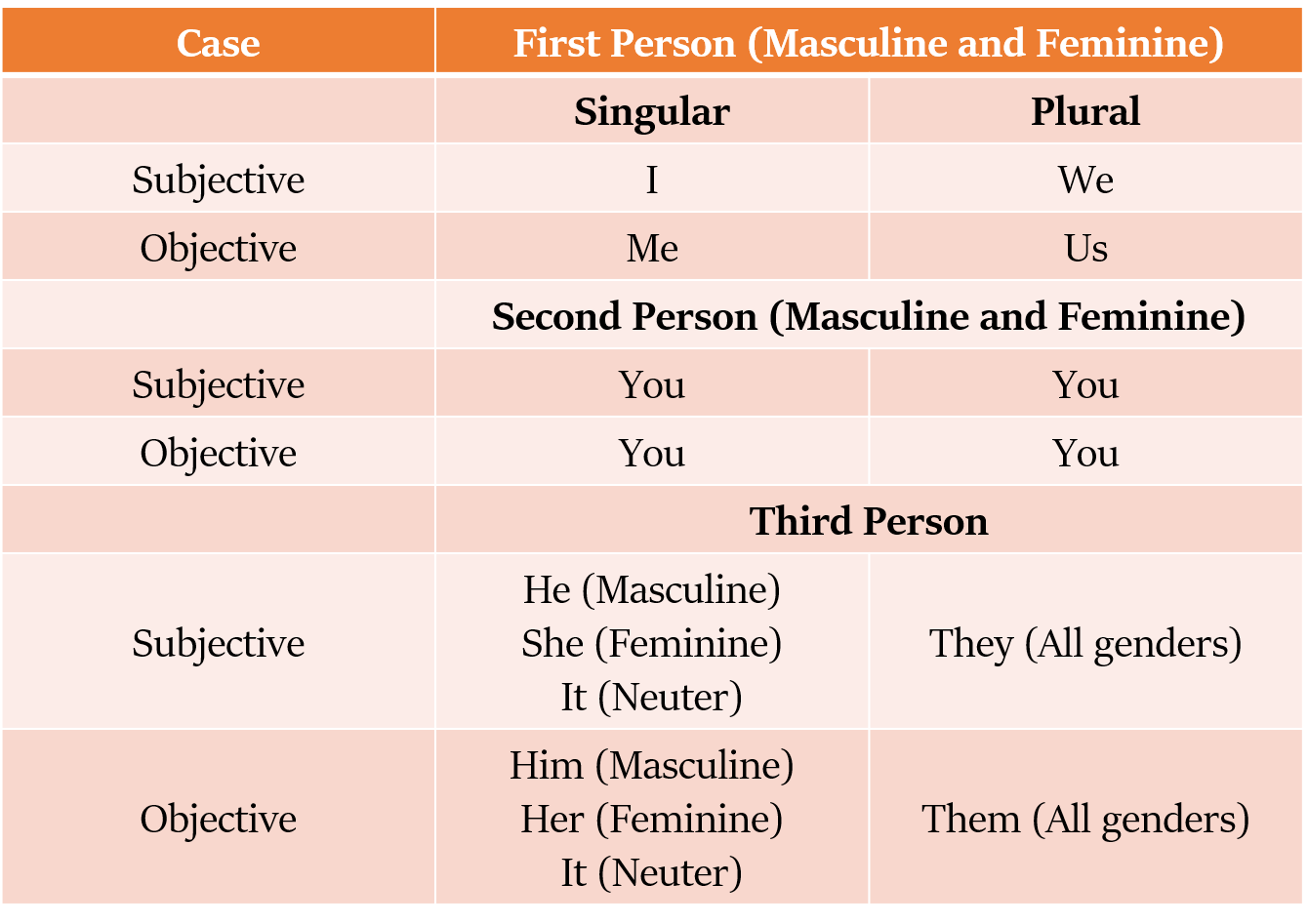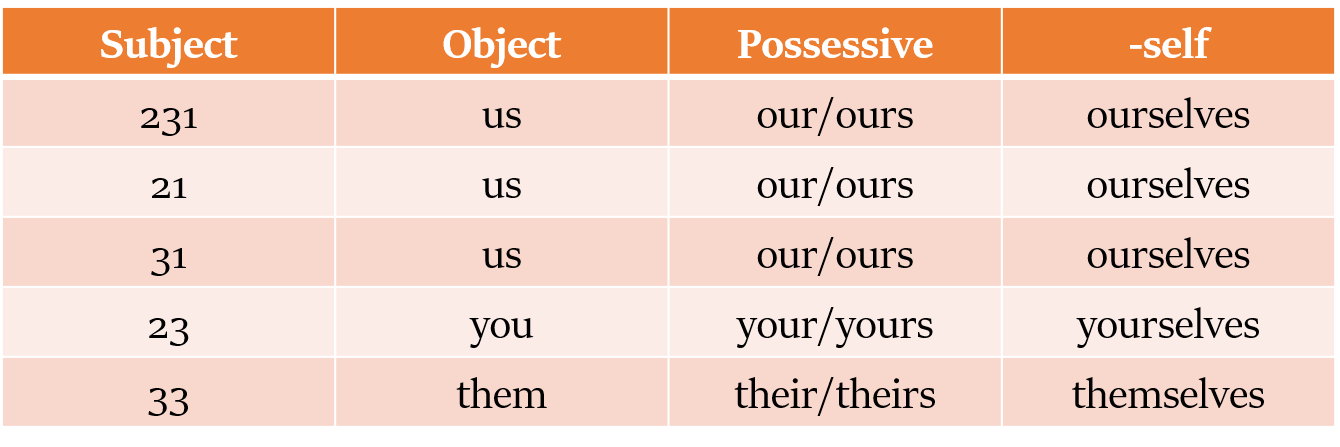Basics of Personal Pronouns
What are Personal Pronouns?
Personal Pronouns - they stand for the three persons.
I person: the person(s) speaking, e.g. I, we.
II person: the person(s) spoken to, e.g. you.
- III Person: the person(s) spoken of, e.g. he, she, they, it.
Subjective & Objective Cases of Personal Pronouns
We use subjective case of pronoun when the pronoun is working as a subject or subject complement.
We use objective case of pronoun when it’s working as an object (direct, indirect or prepositional) or object complement.

Each of the personal pronouns, I, We, He, She and They, has a different form for the objective case, namely, Me, Him, Her, Us, Them.
You and It have the same form in both subjective and objective cases.
Concept 1: I versus me
It is a common mistake to use ‘I’ for ‘me’ and vice-versa, when the pronoun is connected by a conjunction (and, or) with some other word.
Examples:
You and me are made for each other. (incorrect; me is objective case)
You and I are made for each other. (correct; You and I – subjects in subjective case)
My father will not allow you and I to go to the market. (incorrect; I is subjective case)
My father will not allow you and me to go to the market. (correct; you and me - objects in objective case)
Concept 2: ‘let’, ‘between … and’, ‘but’, ‘except’
We use objective case after ‘let’, ‘between … and’, ‘but’, ‘except’.
Let I play soccer. (incorrect)
Let me play soccer. (correct)
Between she and I, there is a big age difference. (incorrect)
Between her and me, there is a big age difference. (correct)
Everybody but he was present for the meeting. (incorrect)
Everybody but him was present for the meeting. (correct)
Except he everyone else was present in the party. (incorrect)
Except him everyone else was present in the party. (correct)
Concept 3: In case of Comparison
When we are comparing with the Subject (which obviously will be in subjective case), then we will use pronoun in subjective case after as/than.
When we are comparing with an Object (which obviously will be in objective case), then we will use pronoun in objective case after as/than.
In layman terms we can say that, a subject is compared with a subject and an object is compared with an object.
Examples:
I walk faster than him. (incorrect; I is in subjective case, but him in objective case)
I walk faster than he. (correct; both I and he are in subjective case)
She is as good as me. (incorrect; She is in subjective case, but me in objective case)
She is as good as I. (correct; both She and I are in subjective case)
Using the wrong case may even change the meaning of the sentence.
Examples:
Bradman likes Sachin more than me. (Bradman – subject; Sachin - object)
In this sentence, we are comparing with an object (i.e. Sachin), so we will use a pronoun in objective case (i.e. me). This sentence means that, Bradman likes Sachin more than he likes me.
Bradman likes Sachin more than I. (Bradman – subject; Sachin - object)
In this sentence, we are comparing with a Subject (i.e. Bradman), so we will use a pronoun in subjective case (i.e. I). This sentence means that, Bradman likes Sachin more than I like him.
The following sentence makes this even more clear:
Bradman likes Sachin more than I do.
Position of Personal Pronouns
Concept 1: Singular form
If all the three persons or two out of three persons (in singular form) come in a single sentence → the order is 231.
You, she and I shall work on this project. (231)
You and he have set a new record. (23)
He and I have finalized our presentation. (31)
You and I need to talk. (21)
Concept 2: Plural form
If Pronouns are in plural form → the order should be 123.
We, you and they should now leave for the airport. (123)
Concept 3: Negative situation
If there’s a negative situation (e.g. something wrong is talked about or some mistake is being accepted) → the order is 123.
I, you and he have committed this crime. (123)
You and he have done this blunder. (23)
Concept 4
Let us see now what kind of objective case and possessive case pronouns we can use with them:

You, he and I should not waste your time. (incorrect)
You, he and I should not waste our time. (correct; with 231, our should come)
You and he should not be spending our time idly. (incorrect)
You and he should not be spending your time idly. (correct; with 23, your should come)
He and she should not waste ours time. (incorrect)
He and she should not waste their time. (correct; with 33, their should come)

Extra Books and Tools
If you prefer to learn via books, or want some good English Grammar books for reference purposes, you may read this article which enlists some of the books recommended by us.